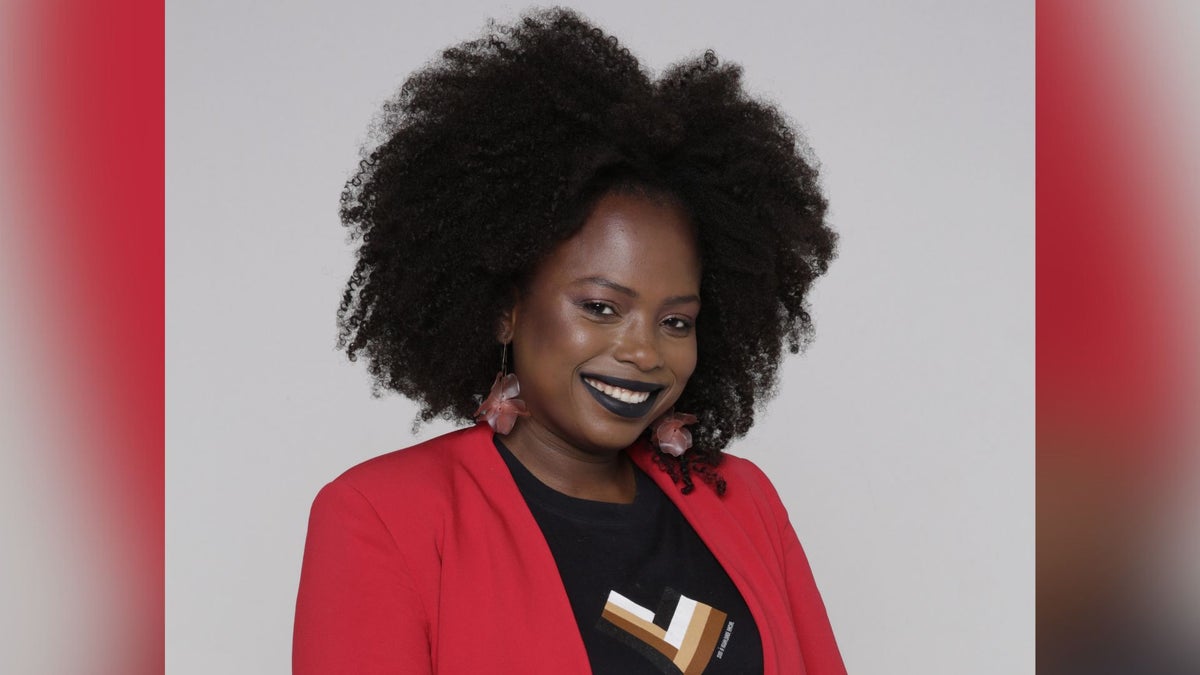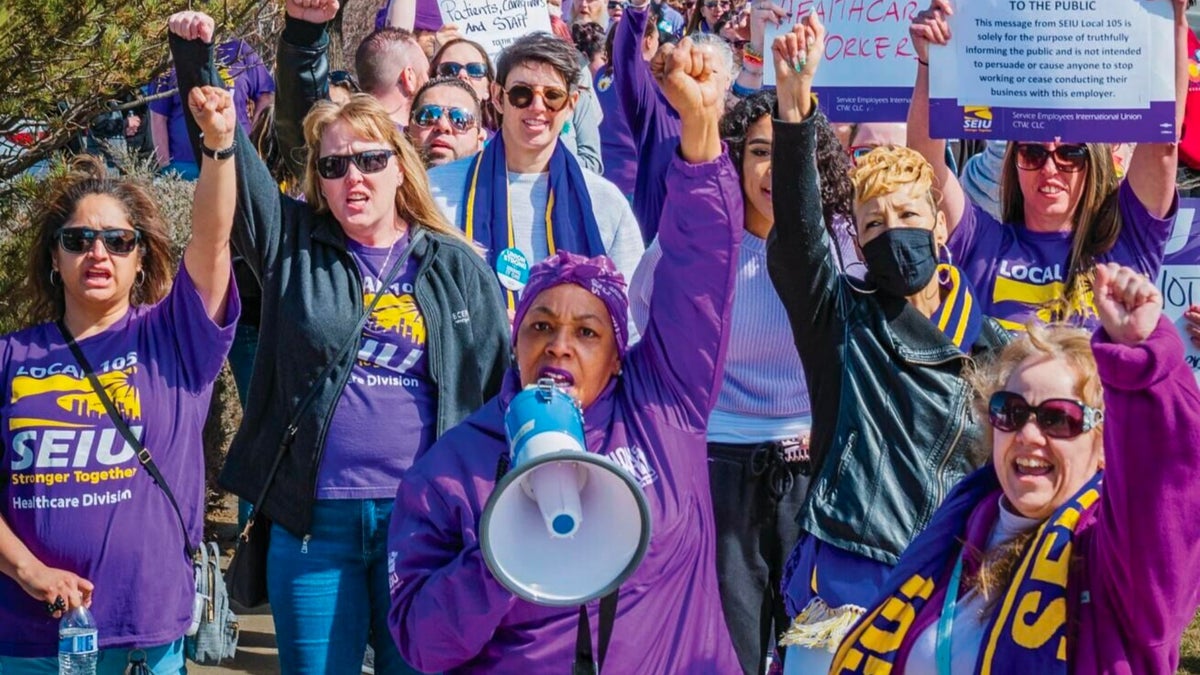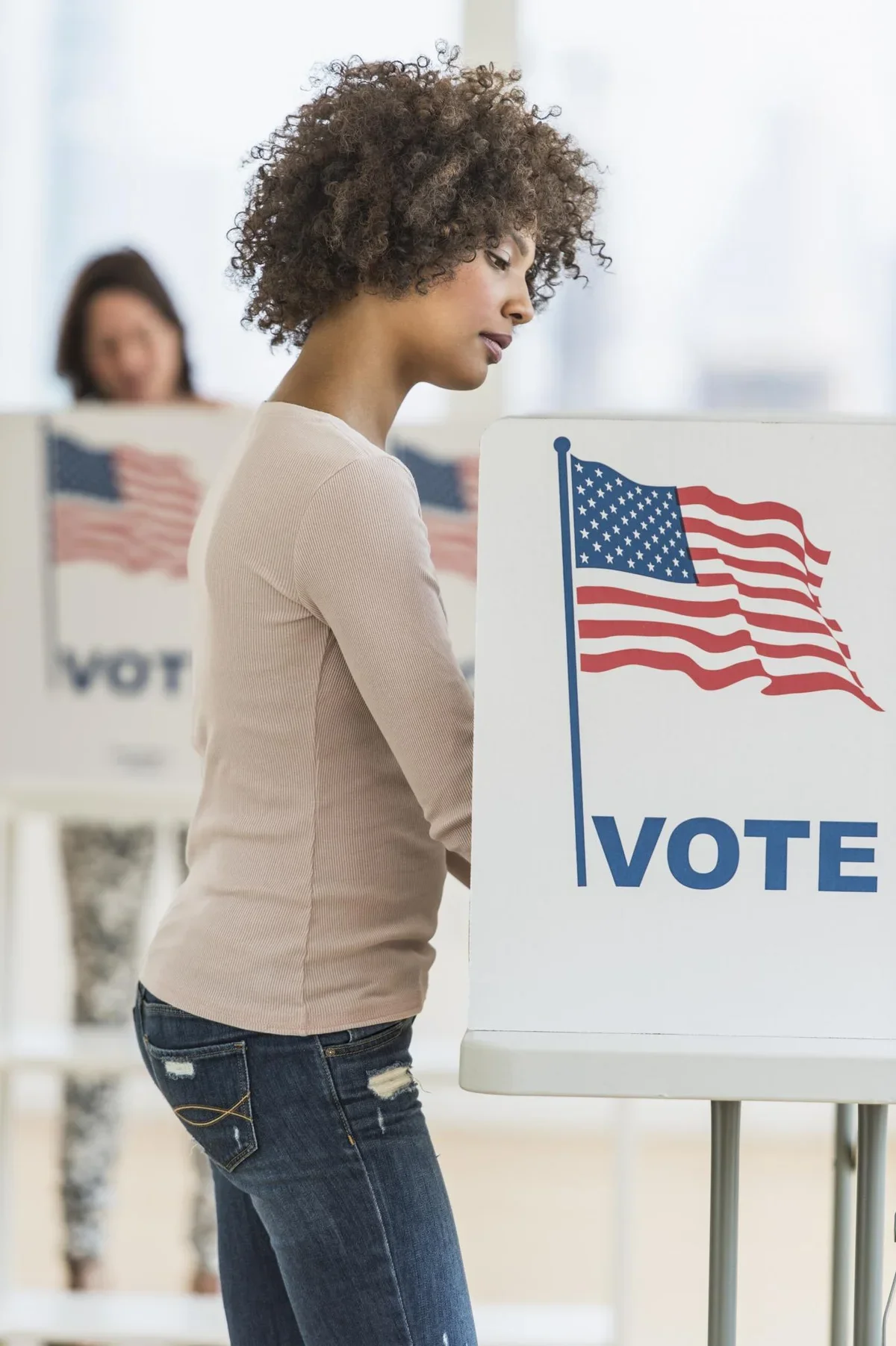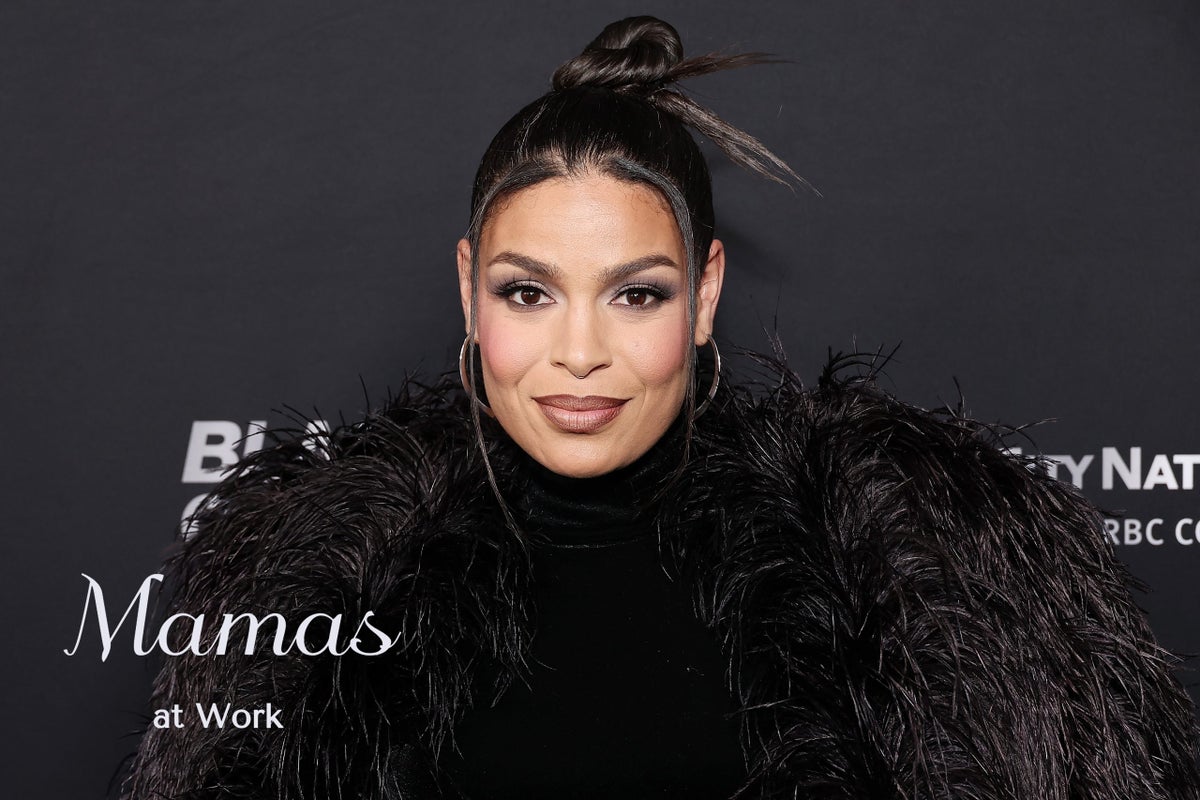
I meet Luana Génot at a restaurant inside the Fairmont Rio overlooking the famous Copacabana beach in Rio de Janeiro on my last morning in Brazil. Even though the former model and current President and Executive Director of the Identity Institute of Brazil (ID_BR) is supposed to be taking a much-needed break from work and spending time with her family, she agrees to chat with me about her efforts to increase opportunities for Black and Indigenous people in her country.
“You see, Black women, workaholics,” she says after greeting me with a bright smile and handing me a copy of her book, Mais Forte: Entre Lutas e Conquistas, which translates to “Stronger: Between Fights and Conquests.”
“It’s a global thing,” I say in response. I, too, am supposed to be on vacation.
Over the next hour, Génot puts into perspective the plight of Black Brazilians—which is how she prefers to self-identify — in a country whose residents overall are slowly shifting their racial identities as well.
According to data from the latest census, the proportion of self-declared white Brazilians fell from 47.7% to 43.5%, or 88.2 million in 2022, while 45.3% of the population (92.1 million Brazilians) now identify as mixed-race, representing an increase of 2.2% from 2010, when the last census was taken. What’s more, the number of Brazilians self-identifying as Black increased from 7.6% in 2010 to 10.2% of the population (20.6 million) in 2022.
Yet, as she explains it, being a part of the majority in a country with the largest population of African descendants outside of Africa doesn’t exempt Black Brazilians from being minorities in places of power. “There’s a hierarchy; the lighter, the better,” she says. “Better opportunities, better access, better information.”
Despite the plethora of entrenched social problems, Brazil is still home. “In Rio, there’s something magical,” she says enthusiastically. “Although it’s a very unequal place, I truly love the energy here.”
Perhaps that is why Génot is so passionate about making sure everyone can enjoy her country equally. In this sit-down interview with ESSENCE, the Brazilian leader details her entry into social reform and what it would take to level the playing field for Black people in the land she truly loves.
Let’s start with your journey from model to social activist.
Génot: I was born and raised in Rio by my mom and my grandma in a very matriarchal family which is very typical here, and when I was around 18, 19 a lot of people were saying, “Oh, you should try to be a model because you’re tall and exotic,” which I hate. It was never beautiful; it was always exotic. Yet I started to ask, “What can I do with this exotic part of myself?” and I wrote to a fashion brand and they invited me to watch a fashion show here in Rio. There was a journalist there who was launching a brand and organizing a tour, and she asked if I wanted to come and do a fashion show for her in Paris and Belgium. And I went.
After that, I became a model. I lived a little bit in Paris, London and South Africa between 2007 and 2009. The minute I decided to become a model, I got an agent/I went to an agency in Paris and the booker said, “I need to tell you the truth. You are so beautiful, but you have a problem. You’re Black.”
Obviously, you can hear that and think, “Oh that’s so mean,” but he was actually telling me something. He showed me around the agency, and we saw about 400 photos of girls and only three of them were Black. That was a shocking reality, but at the same time, it reminded me of my whole life previously.
I had suffered a lot of racism in school. I was always the ugly duckling. That gave me a way to put a name on something that I was suffering throughout my life, and it also give me something to fight for. At the same time, I realized that the jobs I was taking were very limited in terms of money, so I created a blog about the dark side of fashion.
I was very fascinated with being critical about it and raising my voice. As time went on it didn’t make sense to continue in fashion because I didn’t want to be the object, so I came back to Rio and studied marketing. Through affirmative action, I became the first Black woman in my family to get access to university and I was hungry. I was doing 10 things at the same time and then I got into an exchange program, and I went to study at the University of Wisconsin-Madison.
What was that experience like?
Génot: It was a very nice opportunity, but in a very different place from where I was born. It’s like the opposite in terms of diversity and demographics itself, but when I was there, I was like, “This is paradise,” because I could study marketing and I got to study other things like race, ethnicity, and media.
When I went to campus, I decided to volunteer for Obama’s presidential campaign and that inspired me to become a leader. After that, I went to Chicago to work for Burrell Communications. I got to go to Essence Festival, which was amazing, and then when I came back to Brazil, L’Oreal invited me to work for them in the commercial marketing department.
My main colleagues were the ones who were cleaning the place because those were the only Black people there, which made me question, “Why are the only Black women here the ones that have the lowest paid positions?”
When I was working there, when I was crossing the building, people would address me in English because they can’t relate to a Black woman in power that’s Brazilian. When they think about a Black Brazilian, they think about the cleaning lady, the ones who have a very operational job. There is a limitation about being Black. It’s exactly as the booker said to me, “Being Black is a problem and you’ve got to resolve that.” So I quit L’Oréal in 2014, and I decided to open my own business formally in 2016.
Tell me about IDBR.
Génot: I created the Identity Institute of Brazil to bring the topic of racism across marginalized identities in the labor market to the forefront. Usually, in Brazil, we talk a lot about socioeconomics, so you may hear a lot about people from the favela, but even in the favela, there is colorism. The darker you are, the worst positions in the labor market you have. The worst houses you have. The worst rates of homicides you have. I saw that myself.
I opened up a business because I couldn’t find a job. I speak English and have international experience and I could not find a job. People like to say, “If you fight enough, if you have a diploma, you can have whatever you want,” but that’s not true because of your race. And that’s what gave me a lot of strength to open up the business.
It wasn’t easy. I had zero money and zero social capital. I was calling my previous references, and they gave me a lot of inspiration to get connected to other women and become a part of different circles and networks and that’s exactly what I did. Now we have 15 full-time job employees across seven regions in Brazil and we help companies, organizations, and governments implement affirmative action.
We say that more than say no to racism, we need to say yes to racial equality. So we start with the “Yes to Racial Equality” journey assessment, and based on those results we help companies implement actions. For example, we worked with Unilever to build a fund to support Black and Indigenous interpreters. We’ve worked with big companies like Coca-Cola and small companies as well to tie bonuses to their diversity and inclusion goals, or to actually work on their evaluation process because Black people don’t get the same evaluation processes as white people do, or the same recruiting process. We even work on the way they invest their philanthropy money, most of which doesn’t go to Black-led organizations.
Organizations think, “Oh, we are helping Black people because we are giving food away and helping everybody,” and we know that’s not right. Black people don’t want to only have food in our place, we want to have the opportunity to lead this country. I’m fighting for the leadership part of it.
[T]he same people who were on the floats with the slave ships and very proud of being Black, they will not necessarily vote Black. So the consciousness doesn’t go that far. And that’s for a reason. They don’t get enough access to opportunities to study or to work.
Help me contextualize the discrimination that comes with being Afro-Brazilian with the pride in African heritage that was on display during Carnival.
Génot: Well, first, I identify as Black. That’s from the perspective of someone who has studied abroad, but if you talk to my family, it goes from Afro, to Negro, to Preto [“Black” in Portuguese]. They can say mixed, some of them, because there are so many different layers, but Carnival is a very specific time of the year where we somehow give more value to our African identity.
That doesn’t relate necessarily to the rest of the year because being Black somehow is a shame, although it has been changing for the past year, especially because of affirmative action in universities. The more people can study their identities, myself included, the more they are proud of it throughout the year.
But to give you an example, the same people who were on the floats with the slave ships and very proud of being Black, they will not necessarily vote Black. So the consciousness doesn’t go that far. And that’s for a reason. They don’t get enough access to opportunities to study or to work.
So it’s great to show up in carnival, but that doesn’t turn into consciousness because they are denied access to university or to better jobs and that’s because the white people get these opportunities only for them. If we had all those people getting conscious about their rights, this country wouldn’t be this way. White people wouldn’t remain powerful because we are the majority here.
That’s a completely different optic from the US. And that was something that I needed to learn. We are actually the majority. There, we talk about being the minority. But here, even though we are the majority, most of us don’t get access to information and our pride to be Black doesn’t go that far and doesn’t apply to so many different circumstances of how we live.
It’s a very difficult fight. I run a business that’s very related to that fight so it’s very hard to get money. It’s very hard to get people to talk about these things, although that’s been changing, especially after George Floyd. We kill a George Floyd every 23 minutes. We kill way more George Floyds than in the West, but when that happened during the pandemic, people were at home watching that and it’s like, “Oh my god, I can’t believe that” and I was like, “Haven’t you seen the news last week? Is that surprising for you?” There’s a friend of mine who calls Black people in the United States the noisy minority because they can vocalize a lot.
How does all of this play into tourism?
Génot: From an international standpoint, Brazil loses a lot of money by not showcasing our African heritage. Whenever I go to the US and I talk about Brazil, I talk about Bahia. When I talk about Rio, it’s like, “What?” “Where is there this place?” “Should I go there?” A lot of people don’t know that we are, demographically, the biggest Black diaspora in the world. That if you come here, you see a lot of Black heritage. If we would highlight that more in the media, that probably would attract more people to come here and to be connected with the Black heritage we have here.
Even with Carnival, Black people can’t take their consciousness but so far in terms of having it applied to many different circumstances in their life. On Samba Avenue, they play kings and warriors and all of these powerful roles, but when they’re back to work, they’re the cleaning ladies and the cleaning men and they can’t speak up.
In the midst of this ongoing fight, where does your own sense of pride and self-love come from as a Black Brazilian woman?
Génot: Therapy. Obviously, I think my mom and my grandma, from an individual perspective, were very vocal about things. “You need to love yourself.” “You don’t need to rely on someone else.” “You need to have your own money.” I think a lot of things that I have now are because of them. They are very resilient, but now I need to speak nationally, in a domestic way, to peers, but also to the world, to let them know we have this problem because it’s very common to have this problem hidden and it seems that racism is never urgent. It’s never the top problem we have, although for me it’s the main issue we have.
How can Black Americans support your efforts?
Génot: Write about us. I’m a part of the World Economic Forum which is made up of young global leaders and I’m trying to get our voices showcased internationally. We have the main TV awards here on May 8 which reaches 80 million people and showcases Black and Indigenous leaders as well as best practices for anti-racism and inclusion.
We need to bring celebrities from the United States here so they can see another version of Brazil. And the media can support us to give more space to talk another version of the story.







